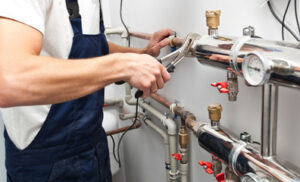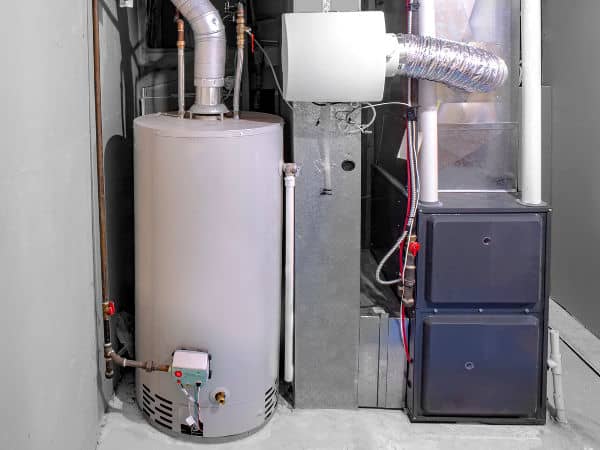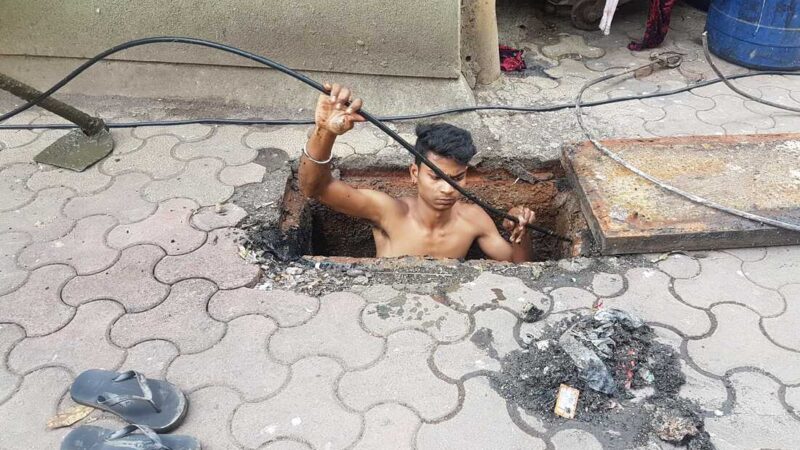The Importance of Plumbing
Plumbing involves the pipes, fixtures, and appliances that provide potable water, drain wastes, and supply gas. This is a trade that requires education and apprenticeships.
 Online academies make it easy for students to learn plumbing basics without leaving the comfort of their homes. Online courses allow students to work independently and fit their studies into busy schedules. Read on https://www.plumbing-express.com/ to learn more.
Online academies make it easy for students to learn plumbing basics without leaving the comfort of their homes. Online courses allow students to work independently and fit their studies into busy schedules. Read on https://www.plumbing-express.com/ to learn more.
Water Supply
The supply of water to homes and businesses is one of the most important of all municipal services. It is essential to human life and must be of adequate quality, continuous, and accessible. It is also a crucial component of the economy and of infrastructure that supports economic activity such as agriculture, construction, energy production, manufacturing, and transportation.
Water for the water supply comes from natural sources, such as rivers, lakes, and the sea (see also aquifers), as well as groundwater infiltrating into porous layers of rock or soil and filling voids or fractures. It may be purified in a treatment plant or disinfected through chlorination and other methods. The water is then stored in reservoirs that can be located above ground (water towers) or on the ground. It is delivered to end-users through distribution lines that may follow a tree-like structure or a grid pattern. It may be delivered to commercial, industrial, and thermoelectric water users as well as to domestic users. It is typically billed to the public using a system that breaks down deliveries to groups of customers based on criteria specific to the water supplier (such as the number of service connections or the volume of water used by large users). It is often estimated that a significant proportion of all drinking water is not accounted for, either through leakage or unauthorized use.
Many countries have national water service providers that serve most or all cities and towns within a country. The provider may own or operate the distribution network, the collection and storage network, or both. In some cases, the national service provider owns and operates all of the infrastructure in a city or town, including buildings, roads, and bridges. This model is most common in developing countries, where the private sector cannot afford to provide all of the infrastructure.
Historically, homes and small business got their water from wells, which were dug by hand or drilled with machinery to reach shallow groundwater. In urban and suburban areas, the majority of water is delivered to homes and business through large pipes, called water mains, that are buried under streets. These mains branch out into smaller pipes that lead to houses or businesses and then through a water meter.
Drainage
Drainage is the artificial removal of surface and subsurface water, preventing flooding, soil erosion, and damage to structures and crops. Successful drainage includes proper site selection, drain placement, monitoring, and timing of drain removal. It also requires knowledge of indications for drain use, different types of drains and their benefits and drawbacks, as well as the skills to install and maintain drains.
A clogged drain is one of the most common plumbing problems, and it is often a drainage problem. Plumbing and drainage are separate systems, but they must work together. If the drainage system is blocked, the plumber will need to know which plumbing stack is involved so that they can find the correct part and fix it.
The drainage system consists of pipes that collect waste and stormwater and carry them to the sewer or septic tank. This system is important for preventing overflowing toilets and other plumbing issues. It is also essential for the maintenance of a home, as it prevents floods and other problems caused by excess water.
To avoid overflowing, it is important to keep the drain clear of debris and leaves. Drains should be regularly checked for blockages, and any issues that occur should be resolved immediately.
There are many different kinds of drains, including point and slot drains, channel drainage, trench drains, and pipe drains. Point and slot drains have a narrow opening, which prevents large sediment from clogging the drain while allowing for a high flow rate. Channel drains are typically made of concrete or steel, and they intercept water at the change of slope or grade. Trench drains are shallow drainage channels that can be used in places where flooding is a problem. Pipe drains are shallow pipe sections that connect to the main drain line, and they are usually made of copper tubing with four wall thicknesses: type DWV (thinest; only allowed as drainage), type L (standard, for water service lines and plumbing), type K (heavy duty for sewer), and type S (smooth).
A plumbing stack is the collection of pipes that carry waste and stormwater to the sewage system. These pipes are arranged vertically and connect to the sewer or septic tank. They can be made of a variety of materials, including galvanized steel, cast iron, and plastic. The most common are PVC and ABS, which are durable and safe for residential and commercial applications.
Heating and Cooling
A plumbing system provides heating and cooling for a home. It also supplies potable water, removes waste water and sewage and distributes gas throughout the house or building. A plumber is trained to work with all of these systems, and is aware of local building codes to ensure that your plumbing works correctly.
A plumber may also be able to install or repair appliances like water heaters, garbage disposals, dishwashers and washing machines. They can even help you choose the best fixtures for your home. Plumbing is a complicated job that requires a great deal of knowledge and skill to perform properly. It is important to have a plumber who is licensed and insured in order to avoid any costly mistakes.
A plumbing career is very challenging and rewarding. There is a large demand for qualified plumbers. Training can be obtained through trade schools, community colleges or on-the-job experience with a journeyman plumber. Those who wish to advance their careers may consider earning a bachelor’s degree in engineering or computer science. This will allow them to become a manager or supervisor of a plumbing company or to own their own business.





